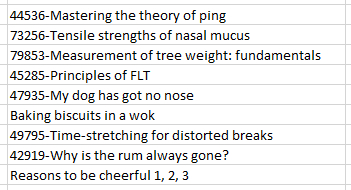PHP Check if String Starts With: Easy Guide
Learn different methods to efficiently determine if a string starts with a specific string in PHP, using inbuilt functions and regular expressions.
Learn different methods to efficiently determine if a string starts with a specific string in PHP, using inbuilt functions and regular expressions.
In PHP, determining if a string begins with a specific substring can be achieved using different methods depending on your PHP version.
To check if a string starts with a specific substring in PHP, you can use the str_starts_with() function (available in PHP 8.0 and later):
$string = "Hello world!";
if (str_starts_with($string, "Hello")) {
echo "The string starts with 'Hello'";
}For PHP versions prior to 8.0, you can use strncmp():
$string = "Hello world!";
$prefix = "Hello";
if (strncmp($string, $prefix, strlen($prefix)) == 0) {
echo "The string starts with 'Hello'";
}This compares the first strlen($prefix) characters of $string with $prefix. If they match, strncmp() returns 0.
The code provides two PHP examples to determine if a string begins with a specific substring. The first example utilizes the str_starts_with() function available in PHP 8.0 and later. The second example employs the strncmp() function, suitable for PHP versions prior to 8.0. Both examples demonstrate the process of comparing the string with the desired prefix and outputting a message indicating whether the string starts with the prefix or not.
1. Using str_starts_with() (PHP 8.0 and later):
<?php
$string = "Hello world!";
$prefix = "Hello";
if (str_starts_with($string, $prefix)) {
echo "The string '$string' starts with '$prefix'";
} else {
echo "The string '$string' does not start with '$prefix'";
}
?>Output:
The string 'Hello world!' starts with 'Hello'
2. Using strncmp() (For PHP versions prior to 8.0):
<?php
$string = "Hello world!";
$prefix = "Hello";
if (strncmp($string, $prefix, strlen($prefix)) == 0) {
echo "The string '$string' starts with '$prefix'";
} else {
echo "The string '$string' does not start with '$prefix'";
}
?>Output:
The string 'Hello world!' starts with 'Hello'
Explanation:
str_starts_with(): This function takes two arguments: the string to check and the prefix. It returns true if the string starts with the prefix, and false otherwise.strncmp(): This function takes three arguments: the two strings to compare and the length of the prefix. It returns 0 if the first n characters of both strings are equal, where n is the length of the prefix.Both code examples achieve the same result: checking if a given string starts with a specific substring. Choose the method that best suits your PHP version and coding style.
str_starts_with() and strncmp() are case-sensitive. If you need a case-insensitive check, you can convert both the string and the prefix to lowercase using strtolower() before the comparison.true since every string technically starts with an empty string.strncmp() might be slightly faster as it only compares the necessary number of characters.preg_match() for more complex pattern matching, including checking if a string starts with a specific substring.strpos() function can also be used, but it requires checking if the returned position is 0, which can be less readable than the dedicated functions.is_string() before using these functions to avoid unexpected errors.Example with Case-Insensitive Check:
$string = "Hello world!";
$prefix = "hello";
if (str_starts_with(strtolower($string), strtolower($prefix))) {
echo "The string '$string' starts with '$prefix' (case-insensitive)";
} else {
echo "The string '$string' does not start with '$prefix' (case-insensitive)";
}
?>| PHP Version | Function | Description |
|---|---|---|
| 8.0+ | str_starts_with() |
Checks if a string starts with a specific substring. Returns true if the string starts with the substring, false otherwise. |
| < 8.0 | strncmp() |
Compares a specific number of characters from the start of two strings. Returns 0 if the characters match. Requires calculating the length of the prefix using strlen() and comparing it to the function's output. |
In conclusion, PHP offers multiple approaches to determine if a string starts with a specific substring. For PHP 8.0 and later, the str_starts_with() function provides a straightforward solution. For earlier versions, strncmp() can be used effectively. When choosing a method, consider factors like code readability, PHP version compatibility, and performance for your specific use case. Remember to handle case sensitivity if required and consider error handling for robust code.
 str_starts_with - Manual - PHP | PHP is a popular general-purpose scripting language that powers everything from your blog to the most popular websites in the world.
str_starts_with - Manual - PHP | PHP is a popular general-purpose scripting language that powers everything from your blog to the most popular websites in the world. PHP | String Functions | str_starts_with() | Codecademy | Performs a case-sensitive search to check if a string starts with a given substring.
PHP | String Functions | str_starts_with() | Codecademy | Performs a case-sensitive search to check if a string starts with a given substring. Test If String Starts With Certain Characters In PHP | CSS-Tricks | We can test if a certain string is the exact start of another string:
Test If String Starts With Certain Characters In PHP | CSS-Tricks | We can test if a certain string is the exact start of another string: PHP | startsWith() and endsWith() Functions - GeeksforGeeks | A Computer Science portal for geeks. It contains well written, well thought and well explained computer science and programming articles, quizzes and practice/competitive programming/company interview Questions.
PHP | startsWith() and endsWith() Functions - GeeksforGeeks | A Computer Science portal for geeks. It contains well written, well thought and well explained computer science and programming articles, quizzes and practice/competitive programming/company interview Questions. How To Check If A String Starts With a Specified String In PHP? | Learn how to check if a string starts with a specific substring in PHP. This guide covers simple methods to perform this common string operation efficiently.
How To Check If A String Starts With a Specified String In PHP? | Learn how to check if a string starts with a specific substring in PHP. This guide covers simple methods to perform this common string operation efficiently. How to check if string is begin with "http" or not in Blade | Global string and array helper functions are deprecated since 5.8 - but you can use the Str::startsWith() method in your Blade template.
How to check if string is begin with "http" or not in Blade | Global string and array helper functions are deprecated since 5.8 - but you can use the Str::startsWith() method in your Blade template. Filtering string on "begins with" alpha or numeric character - KNIME ... | Newbie question on my first workflow! I’ve spent hours searching the forum and other online resources but to no avail! I have a data column that is a string with items of varying lengths, some of which begin with numerical characters (which I want to keep) and some alpha characters (which I don’t) - see example below: How do I do this? I’ve tried a Row Filter node with some regex, which I’m not that familiar with so am failing to get the syntax or the node settings right: I’ve also tried ...
Filtering string on "begins with" alpha or numeric character - KNIME ... | Newbie question on my first workflow! I’ve spent hours searching the forum and other online resources but to no avail! I have a data column that is a string with items of varying lengths, some of which begin with numerical characters (which I want to keep) and some alpha characters (which I don’t) - see example below: How do I do this? I’ve tried a Row Filter node with some regex, which I’m not that familiar with so am failing to get the syntax or the node settings right: I’ve also tried ...